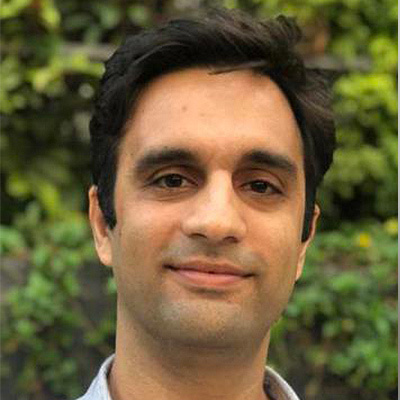Kedar Hippalgaonkar
Nanyang Technological University, Singapore

Functional Materials by Design – Data and Automated Labs
Abstract: The design of electronic and thermal materials, both purely inorganic compounds as well as inorganic-organic hybrids is a difficult challenge due to the large state space in the Structure-Process-Property-Performance paradigm. The process of Materials-by-Design constitutes multiple steps including (A) invertible representations of structure, followed by (B) creation of a database of out-of-equilibrium functional properties, and finally (C) Machine Learning models. Actual synthesis of new materials and composites requires process parameter tuning, where Bayesian Optimization proves fruitful. I will describe our efforts to design new inorganic thermoelectric materials, predicting their performance via machine learning models, and end with the description of a High-Throughput Experimental platform that can synthesize new materials in thin film form with high electrical conductivity. I will demonstrate our ability to make ~160 unique multi-labeled samples in a single day, providing an acceleration of >10x for P3HT-CNT composite films, and when optimized using machine learning, demonstrate high electrical conductivity as large at 1000 S/cm.
Bio
Kedar’s interests are in designing functional materials, especially for energy applications. He has fundamental knowledge in solid state physics, 1D (nanowires), 2D (TMDCs) as well as inorganic-organic (hybrid) materials. His approach to materials by design is built on creating and utilizing materials data by high-performance computing and high-throughput experiments to synthesize and characterize materials via machine learning and optimization. In addition, such an accelerated materials development paradigm can potentially be used for materials discovery. His background is in transport properties of materials specifically in their thermal, optical and thermoelectric properties. He is keen on developing tools such as process optimization, design of experiments and materials and process fingerprinting from materials development to device applications.